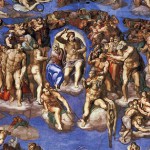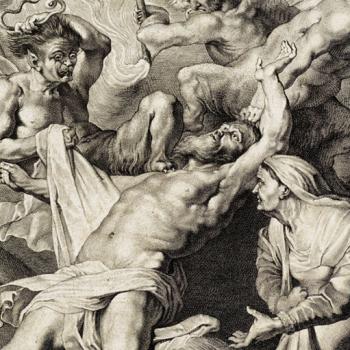By now, the anti-Muslim backlash we witness after every fresh terror attack is not all that surprising. Bigots will be bigots, and they are not known for complexity or nuance in the face of … well, anything.
What makes it more unsettling this time is that while in decades past the top Republican in the country has denounced Islamophobia, this time around Republican candidates for the presidency have fallen over themselves to be ever more hateful toward Muslims.
A full 23 governors (most of them Republicans) announced on Monday that they would not welcome Syrian refugees into their borders, while Jeb Bush noticeably departed from his brother’s more measured words and declared that we should screen people by religion – accepting only Christian refugees and not Muslim ones into America.
As if that weren’t bad enough, the Republican front-runner, Donald Trump, then mused on national television that we should look at shutting down mosques.
All of this from the party of “religious freedom.”
We could wax on about how hypocritical they are for thinking religious freedom means actively discriminating against gays or denying your employees birth control, as opposed to, you know, shutting down houses of worship. But their mentality seems far darker than mere hypocrisy.
Need it even be said in this day and age? To turn one’s back on refugees is the epitome of anti-Christian action.
When Jesus was asked what one must do to attain eternal life in the Gospel of Luke, he affirmed the answer that includes to “love your neighbor as yourself.” When asked who is one’s neighbor, he recounted the famous parable of the Good Samaritan.
The Good Samaritan story is so famous that the weight of its original telling is often overlooked. We talk about someone who stops to help a stranded motorist fix a flat as a “good Samaritan.” Or we say someone is a “Samaritan driver” if they’re particularly passive (i.e., a decent person) and allow people to pull out in front of them in busy traffic.
But forgotten is the fact that this parable was so poignant specifically because it suggested that a Samaritan could be “good” at all. Samaritans were outsiders whose religion and ethnicity were anathema to Jesus’s audience. Not only does Jesus paint the Samaritan as a “true neighbor” in conjunction with the question of who can attain eternal life, he also adds to the punch of such a notion by painting two presumably “good” people – a Levite and a priest – as not so good after all, for they felt no charity for the bruised and beaten bystander and took no pity upon him.
There is also a political element to the story: the man who is beaten and robbed is attacked by lestai. As I’ve written about before, this was a common term for a robber, but it also was used to refer to a violent revolutionary – it had many of the extreme political overtones that we might equate with “terrorist” today. So there’s a very real possibility that the violence in the Good Samaritan story could have been politically motivated, though the story doesn’t depend on that interpretation.
Regardless, even if you aren’t swayed by basic Christian (or just human) charity, then at least look at the math: there are 1.2 billion Muslims worldwide. Among the tiny fraction who carried out the nightmarish assault on Paris, only one of them has even (possibly) been connected with the recent wave of refugees.
Like the man attacked in the Good Samaritan story, these refugees are the frontline victims of fanatical terrorism. As many before me have pointed out, they are fleeing precisely because their homeland has been devastated by war. When refugees fled Europe in World War II, we romanticized their escape into Casablanca, one of the most renowned films of all time. But then, they were mostly white and Christian.
One can speculate about “what Jesus would do” with respect to contraceptives, gays, abortion, or sex education, but when it comes to relating to our Muslim neighbors — wherever they may be in the world — one need only read the Gospels and start acting like Jesus explicitly commanded us to.
 About Don M. Burrows
About Don M. Burrows
Don M. Burrows is a former journalist and current college preparatory school teacher. Don holds a Ph.D. in Classical Studies with a Ph.D. minor in New Testament. A former Christian fundamentalist, Don is now a member of the United Church of Christ and can be found routinely advocating that the Bible cannot be read or explored without appreciating its ancient, historical context. Don lives in Minneapolis with his wife and two young children. Don blogs at Nota Bene and can also be found on Facebook.












